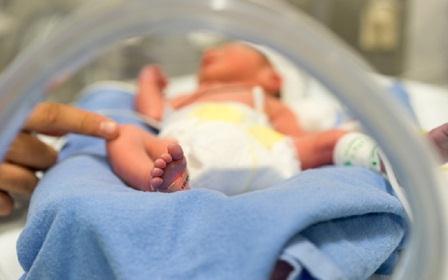
Even among obese pregnant women, being heavier is associated with a higher risk of having babies with serious birth defects, a Swedish study suggests.
Obesity has long been tied to an increased risk of pregnancy complications for mothers and their infants. The current study examined data on 1.2 million births in Sweden and found that the odds of problems like heart defects, nervous system malformations and limb deformities rises along with the severity of mothers' obesity at the start of the pregnancy.
For normal-weight women, the risk of serious birth defects was 3.4 percent, the study found. For obese mothers, the risk ranged from 3.8 percent to 4.7 percent, increasing as women carried more excess weight based on their body mass index (BMI), researchers report in The BMJ.
"The sensitive period of fetal organ development is the first eight weeks of pregnancy and it is in particular during this time BMI may have a negative impact," said lead study author Dr. Martina Persson of the Karolinska Institute and Sachsska Children’s Hospital in Stockholm.
"This means that it is important to try to obtain a body weight as close to normal as possible before conception," Persson said by email.
To assess the relationship between degrees of maternal obesity and the odds of birth defects, researchers examined records for singleton births across Sweden between 2001 and 2014.
They grouped women based on their BMI, a measure of weight relative to height, at the time of their first prenatal visit. Underweight women had a BMI of less than 18.5, normal-weight mothers had a BMI of 18.5 to 24.9, and overweight people had a BMI of 25 to 29.9.
Women with the least severe obesity, known as "class I" had a BMI of 30 to 34.9, followed by class II with a BMI of 35 to 39.9, and the most severe obesity, class III, with a BMI of 40 or more.
Overall, 43,550 babies, or 3.5 percent, had major congenital malformations. Heart defects were the most common, followed by defects of the genital organs, limbs, urinary system, digestive system and nervous system.
The overall risk of serious birth defects was 4.1 percent for boys and 2.8 percent for girls.
After accounting for other factors that can influence the odds of birth defects such as mothers' age, marital status, education, country of birth and smoking status, researchers found the most severely obese women in the study were 37 percent more likely to have babies with birth defects than normal weight mothers.
Although the largest number of malformations involved the heart, the greatest rise in risk linked to obesity was for nervous system problems. Compared to normal-weight mothers, the risk of nervous system malformations rose by 44 percent to 88 percent with increasing severity of obesity.
While the study didn't show why more severe obesity carried a higher risk of birth defects, it's possible that health problems related to excess weight such as increased inflammation, abnormal metabolism, increased sensitivity to the hormone insulin and impaired vascular function all might play a role, Persson said.
The study wasn't a controlled experiment designed to prove that more severe obesity directly causes higher odds of birth defects.
Another limitation of the study is that it only included live births. Miscarriages, still births and induced abortions are more common when babies have serious defects, the authors note.
Even so, it confirms previous research linking obesity to birth defects and offers fresh insight into the potential for the magnitude of mothers' excess weight to influence babies' odds of these problems, said Dr. Aaron Caughey, chair of obstetrics and gynecology at Oregon Health and Science University in Portland.
"This is important because it suggests that even if a woman can't reduce her pre-pregnancy weight down to normal, even reducing one weight class can reduce the risk of complications," Caughey, who wasn't involved in the study, said by email.
Ideally, all women would start pregnancy at healthy weight, Caughey added.
"That may not be entirely possible for many women, but even then a healthy diet and regular exercise is really important," Caughey said.
Source: Reuters
http://www.reuters.com/article/us-health-birthdefects-pregnancy-obesity-idUSKBN19D27G
 FR
FR EN
EN AR
AR








